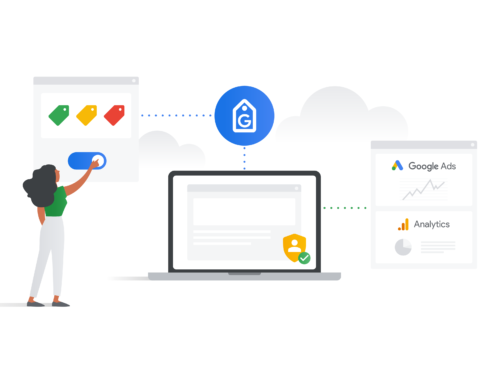Ecommerce business is growing in importance as it provides a convenient, cost-effective, and customer-centric shopping experience for consumers while offering businesses new opportunities for growth and expansion in the digital marketplace. As an ecommerce store continues to evolve, it is expected to become even more effective, reshaping the way you conduct business and meet your consumer demands.
So You’re Starting an Online Shop Business
Starting an online store platform is an exciting journey into the world of e-commerce, offering immense potential for a successful online store. Whether you’re an expert in entrepreneurship or new to the digital online business marketplace, running your own online store can be a rewarding experience. However, it is also a highly competitive landscape, where innovation, creativity, and a deep understanding of your target audience are essential to carving out a distinctive presence.
Here are five key principles to keep in mind when building your online store:
The 5 Principles in Setting Up the Online Shop
Setting up a profitable online store successfully involves various principles and considerations to ensure it operates effectively and meets your customers’ needs.
By following these five principles, you can build a strong foundation for your online business, creating an engaging, trustworthy, and efficient shopping experience for your customers while maximising its potential for success.
A Tailored User-Centric Design
Design your online shopping site for a user-friendly and intuitive experience. Consider the user journey, making it easy for visitors to navigate, search for products, and complete transactions with multiple payment methods. Prioritise responsive design for mobile users, and optimise page loading speed for a seamless experience.
Importance of Product Presentation and Descriptions
Present your products or services in a clear and appealing manner. This includes utilising high-quality product photos, detailed product descriptions, customer reviews, in addition to a well-organised product category page with filters to simplify the search process within your online business.
You Need Secure and Convenient Payment Options
Accept payments online and offer a variety of secure and convenient payment gateways to accommodate diverse customer preferences and payment options. Ensure that the payment process is straightforward and secure to instil trust in your customers. Implement SSL certificates and encryption to protect sensitive data.
Have A Strong Ecommerce Platform
When you’re ready to start an online store, selecting the right ecommerce site is pivotal. Popular choices, such as Shopify, WooCommerce (for WordPress), and Magento, are powerful options that cater to various business needs and preferences.
Your chosen platform should not only support essential features like inventory management and order processing but also enable seamless integration with crucial tools such as customer relationship management (CRM) and email marketing to enhance your sales channels. Additionally, consider the importance of effective online advertising strategies to drive traffic and boost your sales.
Implement SEO and Online Marketing Strategies
Use SEO (search engine optimisation) to improve your online store visibility in search engine results pages. Optimise product listings with relevant and targeted keywords, create engaging content and build high-quality backlinks. Consider pay-per-click (PPC) advertising, social media marketing, and email campaigns to drive traffic and sales.
How To Set Up An Online Store While Using SEO Services as Small Business Owners
SEO services and digital marketing strategies offer numerous benefits when setting up an online shop. Here are some ways in which SEO services can be highly beneficial for your e-commerce business model:
- Increased Visibility: SEO helps your online shop appear higher in search engine results pages (SERPs). This increased visibility makes it more likely for potential customers to discover your products or services, driving organic traffic to your website.
- Target Audience and Traffic: SEO allows you to target specific keywords and phrases relevant to your products or services. This means that the traffic coming to your site is more likely to be interested in what you offer, increasing the chances of conversion.
- Improved User Experience: SEO best practices and a better user experience often go hand-in-hand. Optimising website speed, mobile responsiveness, and site structure can improve user satisfaction, encourage longer visits, and lead to more sales and increase repeat customers.
- Local SEO: If you have a physical store in addition to your online shop, local SEO can help you attract foot traffic by optimising for location-based searches. This is especially important for brick-and-mortar store with an online presence.
- Competitive Advantage: By investing in SEO, you can outperform your competitors’ ecommerce online stores in search results. Ranking higher than your industry competitors can be a significant advantage in the highly competitive e-commerce landscape.
SEO services are an essential component of setting up and maintaining a successful online store. They help improve visibility, attract the target market, enhance the ecommerce website user experience, and contribute to the overall success and growth of your ecommerce business.
A Guide to Setting up an Ecommerce Shop
Starting an online retail store involves several steps. As a new business owner, you may be wondering how to set up an online shopping website or your own online shop. This brief guide will walk you through the steps involved:
Market Research
Begin by researching your target market and identifying your niche. Understand your potential customers, their needs, and preferences. Analyse your competitors and market trends to discover opportunities.
Create a Business Plan
Develop a detailed business plan that outlines your goals, budget, revenue model, and marketing strategy. A well-thought-out plan is crucial for the success of your online shop to succeed.
Choose a Business Model
Decide on your business model, which could include dropshipping, wholesaling, or manufacturing your own products. Your model will influence your supply chain and inventory management.
Legal Requirements
Register your business name, obtain any necessary licences, and comply with legal and sales tax regulations in your jurisdiction. Ensure you have a clear understanding of e-commerce laws and regulations.
Select a Niche and Products
Choose the specific niche or industry you’ll operate in for your online store. Research and select products or services to sell, keeping market demand and profitability in mind.
Website Design and Ecommerce Platform
Design an attractive, user-friendly website. Focus on mobile responsiveness, easy navigation, and clear product presentation. Implement a secure and intuitive checkout and payment gateway process. In addition, select a suitable e-commerce platform, based on your needs, budget, and technical expertise. Your platform will be the foundation of your online shop.
Product Listings: Create compelling product listings with high-quality images, detailed product descriptions, prices, and clear call-to-action buttons. Optimise listings for SEO to improve search engine visibility.
Payment options
Set up secure payment gateways to allow customers to make transactions. Offer a variety of payment options to accommodate different preferences.
Launch and Test
Launch your online shop and thoroughly test all website functions, including payment processing and checkout and start selling online. Ensure that your site is error-free and functional before opening it to the public.
Setting up an online shop is a complex process that requires careful planning and execution at every stage. Success often depends on thorough research, effective marketing, and a strong commitment to customer satisfaction.
Is It Hard Setting Up an Online Store Website Or Ecommerce Platform?
Setting up an online store website or e-commerce platform can range from relatively easy to more challenging, depending on your circumstances. It’s essential to assess your skills, resources, and goals before embarking on the journey.
While it can be complex, with the right approach and support, it’s certainly possible for individuals and small businesses to establish a successful online store.
Cost of Setting Up an Online Shop
The costs of launching and maintaining an online store vary widely depending on several factors, including your business model, ecommerce platform, website design, product sourcing, marketing strategies, and operational expenses.
How To Set Up an Online Store for Free?
Keep in mind that while basic online stores can be set up for free, you may need to invest in premium features, more products, marketing, and other expenses as your business grows. The “free” model often has limitations, so be prepared to scale your online store as needed to meet your long-term business goals.
Setting Up an Online Store on Shopify
Setting up an online store on Shopify is a straightforward process. By following the below prompts, you can easily create your Shopify ecommerce business:
- Sign up for Shopify
- Fill in Your Store Details
- Add Products to Your Online Store
- Choose a Shopify Plan
- Customise Your Online Store
- Set Up Domain and Payments
- Configure Shipping
- Create Pages and Policies
- Launch Your Store
- Promote Your Store Through SEO Marketing Tools
Setting up an online store on Shopify is straightforward and the platform offers many resources and support to help you along the way. As your online business grows, consider using Shopify’s extensive library of apps and integrations to enhance your store’s functionality and reach.
Setting Up an Online Store on Instagram
Setting up an online store on Instagram involves using Instagram Shopping, a feature that allows you to tag products in your posts and stories, enabling users to view product details and make purchases directly on the particular ecommerce platform. By following the below prompts, you can easily create your Instagram ecommerce online shopping experience:
- Meet Eligibility Requirements
- Connect Your Instagram Account to a Facebook Page
- Add Product Listings to Facebook Catalog
- Enable Instagram Shopping
- Tag Products in Posts and Stories
- Review and Publish
- Promote Your Instagram Store Through Digital Marketing Tools
Setting up an online store on Instagram is an effective way to tap into the platform’s massive user base for e-commerce. However, Instagram’s commerce features are constantly evolving, so it’s important to stay up-to-date on any changes in their policies and offerings.
Setting Up Your Own Online Store on WooCommerce
Setting up an online store on WooCommerce is a popular choice for those using WordPress as their content management system. Here’s a step-by-step guide to help you get started:
- Install WordPress
- Choose a Hosting Provider
- Install the WooCommerce Plugin
- Set Up WooCommerce
- Add Products
- Customise Your Online Store
- Install WooCommerce Extensions
- Test Your Store
- Launch Your Online Store
- Monitor and Optimise Through SEO
Setting up an online store with WooCommerce offers a flexible and customisable e-commerce solution. While the basic setup is relatively straightforward, WooCommerce’s flexibility lets you create a unique and tailored shopping experience for your customers.
Marketing Your Ecommerce Store
If you’re about to start an online store, marketing efforts are essential for success. Marketing helps online businesses reach potential customers, build brand awareness, and drive sales.
Here are some specific marketing strategies that you can use to make your ecommerce store profitable:
Use Integral Media SEO Agency
By using the marketing strategies that our digital marketing experts know well, online businesses like yours can reach more customers, increase brand awareness, drive sales, and make your e-commerce store profitable all through SEO tools and successful marketing campaigns. Integral Media services include:
- SEO: Search engine optimisation helps your website rank higher in search engine results pages (SERPs). This means that more people will see your website when they search for products or services like yours.
- Pay-per-click (PPC) advertising: PPC advertising allows you to place ads at the top of SERPs. You only pay when someone clicks on your ad, so it can be a very effective way to drive traffic to your website, including Google Ads.
- Content marketing: Content marketing involves creating and distributing valuable content to attract and engage potential customers. This content could include blog posts, articles, videos, or e-books.
- Analytics and Tracking: E-commerce store analytics and tracking is the process of collecting and analysing data about your online store’s performance. This data can be used to improve your website’s design, marketing campaigns, and product selection.
For more information and a free consultation on our SEO services, reach out to Integral Media today by visiting our website and enquiring online, emailing us at [email protected] or calling 03 8678 1709.






